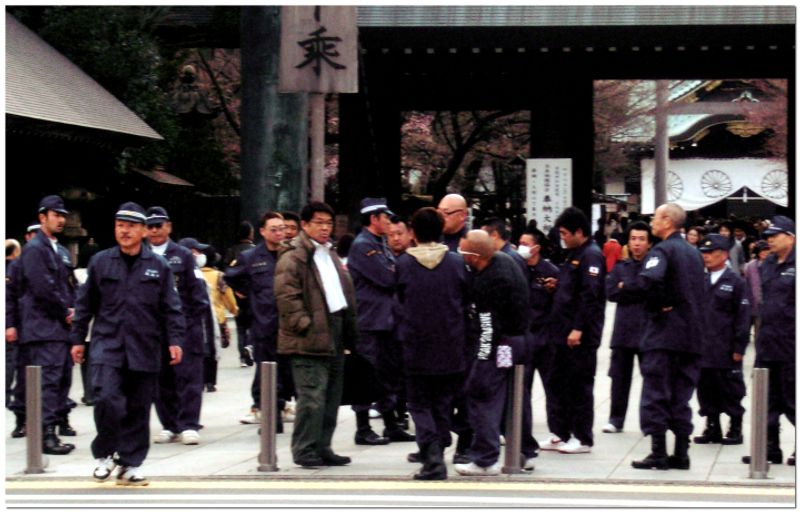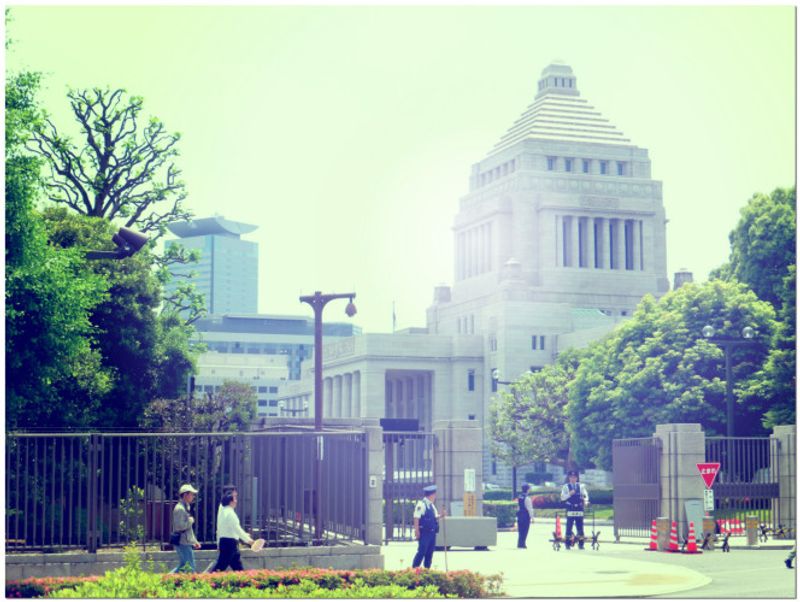May 22, 2015
Why Can't I Vote? Foreigner Suffrage in Japan

The UK’s general election this month (May 2015) saw the highest voter turnout since 1997. Here in Japan, the last general election turnout (December 2014) saw an estimated record low. Local elections were also held here on Sunday (May 17, 2015), and in both, there will have been one population demographic conspicuous (or not) by its absence. Non-Japanese residents. So, here at City-Cost we’re asking, Why can’t non-Japanese residents of Japan vote?.
Let’s clear something up first. There's a danger that this question sounds loaded with chagrin, as if Japan is the ONLY country in the world that doesn't allow its foreign residents to vote. It isn't. Far from it.
So, just why can't I vote?
To put it simply, because you're not Japanese. A lot of arguments against affording foreigners suffrage (the right to vote) often start with the line, It's unconstitutional!. This might be referring to Article 15 of The Constitution of Japan (Chapter III: Rights and Duties Of The People), the opening line of which reads, The people have the inalienable right to choose their public officials and to dismiss them.. Although it's not explicit anywhere in the translation, are we to presume that 'the people' refers to Japanese nationals? There is some confusing language though. The third line reads, Universal adult suffrage is guaranteed with regard to the election of public officials.. Universal adult suffrage; the right of all adults to vote. Article 14 of the same chapter further adds to the confusion, All of the people are equal under the law and there shall be no discrimination in political, economic or social relations because of race, creed, sex, social status or family origin.. There is no mention here,though, of nationality.
However we interpret the constitution, currently, suffrage in Japan is tied to one’s nationality.
What’s wrong with me being able to vote?
There are any number of arguments put forward here. Some of the most common ...
For a lot of conservative thinkers, affording the vote to non-nationals might be seen as a breach of sovereignty, leading to a sense that they are losing control of their own country. Not that this sentiment is exclusively the realm of the reactionary conservative. We should understand that compared to other parts of the world, Japan is still in a relative infancy when it comes to internationalization and matters of immigration, and many people are yet to feel comfortable with these issues.

An argument that is often put forward, perhaps as a way for the political right to seem well, less politically right, is that such a move could lead to a rise in nationalism, of the more extreme kind. There is already a visible and vocal extreme right in Japan, and a move to allow non-Japanese the right to vote could bolster their ranks and lead to a rise in tensions.
There are also concerns that non-nationals could use their vote to support or undermine policies in accordance with the national interests of their native country. In a time of rising tensions with neighbors over territorial claims, and the current administration’s more active (some would say aggressive) stance on security, affording suffrage to non-nationals may be seen as detrimental to the nation’s goals in these areas.
Has anyone tried to get me the right to vote?
When Yukio Hatoyama lead the Democratic Party of Japan to an emphatic election victory in 2009, one the policies they sought to introduce was foreigner suffrage in local elections. Despite it being a relative B-list policy, the proposal still drew a protest of more than 10,000 in Tokyo, and faced in-party opposition. Ultimately, the proposal was scrapped and it wasn’t long before the more conservative leaning Liberal Democratic Party (the party of the current administration) came back to power.
The Japanese Communist Party is also a vocal supporter of affording voting rights to foreigners.
One of the largest and best organized groups of non-Japanese residents calling for voting rights are Koreans, particularly those that trace their residence in Japan back to the days when Korea was under Japanese rule . The Korean Residents Union in Japan associates itself with South Korea (as opposed to North). It has been spurred on in recent years by the South Korean administration affording voting rights in local elections to their foreign nationals (including Japanese).
In 1990, a group of ethnic Korean permanent residents of Japan, filed a lawsuit against the Osaka Election Committee for not including them on the voting register. Five years later, the Supreme Court ruled on the matter. Depending on the source, the court either ruled that the right for non-Japanese permanent residents is constitutional, or they didn’t. If they didn’t, there was, however an obiter dictum (basically, a judge’s remark) included in the paperwork in which it was said that the right for foreigners to vote in local elections is constitutional. Ultimately though, it didn’t result in any kind of foreigner suffrage, but the case is often used as leverage by those that are in support of this.
Will I Ever Be Able to Vote in Japan?

Currently, the only way to obtain suffrage is to naturalize, to become Japanese. In completing the naturalization process you will have to forfeit your current nationality.
With the Olympics on the horizon and an aging population that needs someone to look after it, Japan is beginning to look overseas for its labor force. It’s a situation that is sure to give this issue further prominence.
Or, just sit tight and wait? Pro foreigner-suffrage parties are often steadfast in their belief that the extension of such rights are inevitable.
In the mean time, there are local municipalities that allow their permanent foreign residents to vote in referendum (voting to determine action on a single issue).
If I could vote, would I? And who for?
The current administration might consider handing the vote to foreigners just to get the numbers up (he said as a joke)! Turnout for the election in December 2014 was a disappointing 53.3% (Reuters). For a comparison, the recent general election (May 2015) in the UK saw a turnout of 66.1%. It seems that currently in Japan, large numbers of those who can vote, don’t.
Now, over to you. Do you want to vote? Do you think you should be afforded the right to? If you had that right, would you exercise it? Let us know in your comments below!



2 Comments
dipta
on Jun 18
One argument that is heard often enough in my country is that permanent residents pay taxes and are part of the community and, therefore, should also be entitled to vote. Whilst the concern of some people regarding the interests of the nationals may carry some weight, I still think that people like myself, who have been living in Japan for almost 10 years, work honestly, abide the Japanese laws and pay as much taxes as any other citizen, should be considered exactly that - a citizen in their own right. I'm not saying foreigners should be able to run for presidency or the likes, but not being able to voice our opinion regarding the way ministers and other people run the country where we live in and pay taxes? I believe that the permanent residents who fulfill some requirements (such as being able to speak the local language fluently) should be entitled to vote. Personally, I find it very concerning that many Korean people have lived in Japan for generations and are still considered foreign. In 2018, I don't think this is about Japan still being "in a relative infancy when it comes to internationalization and matters of immigration, and many people are yet to feel comfortable with these issues." This is an excuse I tire to hear and, if we are going to be honest and just call things by their names, this is about being xenophobic and having a huge superiority (or inferiority) complex. I meet this kind of people everyday, so I know (and I'm a Caucasian woman from Europe working in engineering, it could be worse!). I married my Japanese husband last year and it's because of him I'm still in Japan. Unfortunately, this is one point that makes me wonder sometimes if I didn't make a big mistake. I dread thinking that I will wake up someday and find that I have lost it all back home (my parents gone), that my future children will be considered less than the others and that they themselves will think that their mum is less than the others - someone who cannot communicate fluently and can't even vote, who has no value.
dipta
on Jun 18
Sorry for the long ranting. I would like to add that what is also frustrating and absurd, as the article also mentioned, is that many times the Japanese people have more rights living abroad for a few years than an immigrant from that same country has after living in Japan for decades! To top it off, Japanese people are privileged in that they will never get to see the other side of the coin and experience the same difficulties.